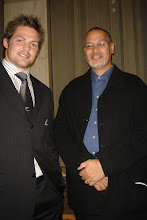As far as the 'musket wars' are known to historians and others, these beliefs about increased warfare and blood-lust after the introduction of muskets represent the only generalisations about the period they are prepared to accept or have adopted. The 'musket wars' have in fact suffered from an attitude in historical and popular opinion (increased perhaps by some of the spate of late twentieth-century and early twenty-first-century reports to the Waitangi Tribunal on pre- 1840 events) that can be characterised as the 'Te Rauparahaisation' or 'Hongi Hika-isation' of the 'musket war' period.'
That is, in the opinion of many scholars, every event in the 1820s or 1830s is an action of, or a consequence Of' the Napoleon, like ambitions and personal talents - the personal agendas - of these two supremely successful chiefs or a few of their 'generals'. Perhaps because of the small size of this country and the limited number of documented Maori campaigns as compared with, say, tribal warfare in Africa in the eighteenth and nineteeth centuries, it is believed that these two individuals and their activities reigned supreme over Maori events before 1840.
Rather than regarding their activities in the period as typical of a phenomenon common to and symptomatic of developments in the whole of Maori society, the actions of these two chiefs have been treated as unique, and as formative of the whole period. If any individuals are chosen by historians to typify the period, it is these two.
Angela Ballara "Taua'.





No comments:
Post a Comment